Cheers Compatriots – Part One and Part Two
At the end of 2014, a letter titled “Solidarity with Russia” and signed by more than a hundred representatives of the Russian nobility abroad circulated on the net. It was compiled by Prince and Princess Dmitry and Tamara Shakhovsky with the assistance of a certain initiative group "Russian Bridge". The authors of the declaration reported that they could not come to terms with the daily “slander against modern Russia, its leadership and its president” and were outraged by the “shameful suppression” by the European authorities and the media of the “crimes” of the Ukrainian army in the Donbass.
In an interview with Rossiyskaya Gazeta, Prince Dmitry Shakhovskoy , who heads the Union of Russian Nobles in France, admitted that for the descendants of white emigration, "Crimea never ceased to be Russian":
“It seems that right now we are returning to …“ the restoration of Holy Rus' ”. <…> All my life I have defended the foundations that were passed on to me by my parents, and the main of them is the unity of the Russian land. Therefore, when it strengthens, as was the case with Crimea, this means that the country is returning to normal, and this is a certain manifestation of its vitality.”
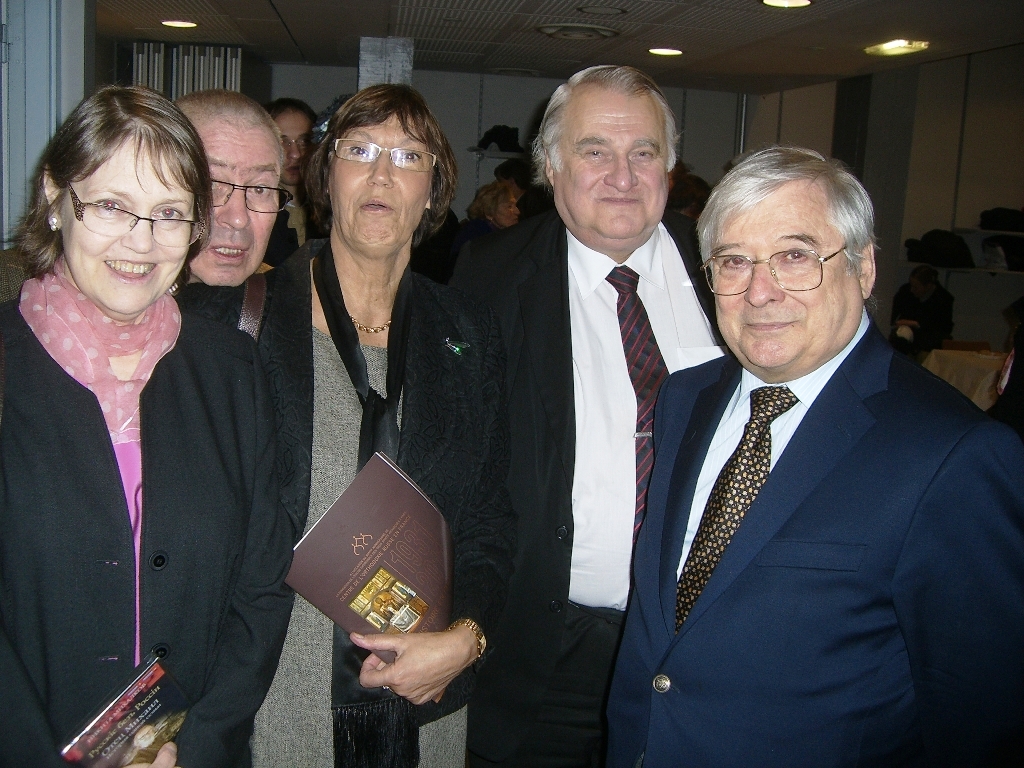
“It is faith in Russia that should be the core that we must hold on to. And this is partly the salvation of the whole world, ”Shakhovskoy proclaimed, receiving in 2019 from the hands of Foreign Minister Sergei Lavrov the award “For Contribution to International Cooperation”. Two of his sons live in Moscow. The eldest, Ivan, in recent years worked as deputy chairman of the Committee for the Protection of Historical and Cultural Monuments of St. Petersburg, and the youngest, Illarion, is associated with the Safe Internet League of Konstantin Malofeev . It is Malofeev who is considered the Kremlin’s curator of relations with the descendants of the “old” Russian emigration, and through them with representatives of European conservative circles.
Monarchists with experience
One of Malofeev's closest associates in this field was Prince Zurab Chavchavadze , born in Paris, former chairman of the Supreme Monarchist Council and representative of the "head of the Russian Imperial House" in the Russian Federation. The founder of the Tsargrad TV channel, Malofeev, said that he met the prince at the age of 16 and he became for him "a guide to the world of pre-revolutionary Russia and Orthodoxy, the Russia that we lost." Chavchavadze is involved in almost all Malofeevsky projects: he was the general director and a member of the board of trustees of the St. Basil the Great Charitable Foundation, led the private Orthodox gymnasium of the same name in the Moscow region, and was a member of the supervisory board of the Double-headed Eagle monarchist society, advocating the restoration of the Russian Empire. And he also helped the Orthodox oligarch to establish contacts with the French ultra-right.
Chavchavadze helped the Orthodox oligarch Malofeev establish contacts with the French far right
In 2014-2015, the French media released a series of investigations about the connections of the National Front (after renaming – National Association) Marine Le Pen with the Kremlin. The Mediapart publication found out that the National Front received a €9 million loan from the First Czech-Russian Bank for the conduct of the election campaign; the owner of the bank was Roman Popov, a businessman close to Gennady Timchenko. A few months later, another €2 million was transferred to the account of Jean-Marie Le Pen's company from a Cypriot structure owned by the "former KGB officer" and ex-head of VEB Capital, Yuri Kudimov. The financial assistance from Moscow was unequivocally seen by observers as a reward to the extreme right for supporting the annexation of Crimea and, in general, Russian policy towards Ukraine.
At the same time, Canal + established that it was Zurab Chavchavadze who met Jean-Marie Le Pen in Moscow in October 2014 – during this secret visit, the founder of the National Front met with Malofeev and the odious philosopher Alexander Dugin. In an interview with journalists, the Georgian prince admitted that he had long and closely known the Le Pen family, and also said that Malofeev and the leader of the National Front met in Paris. When asked if the Russian oligarch is funding the French nationalists, Chavchavadze replied evasively: "You can never prove it." Jean-Marie Le Pen himself confirmed to reporters that Malofeev helped him get a loan for the election campaign.
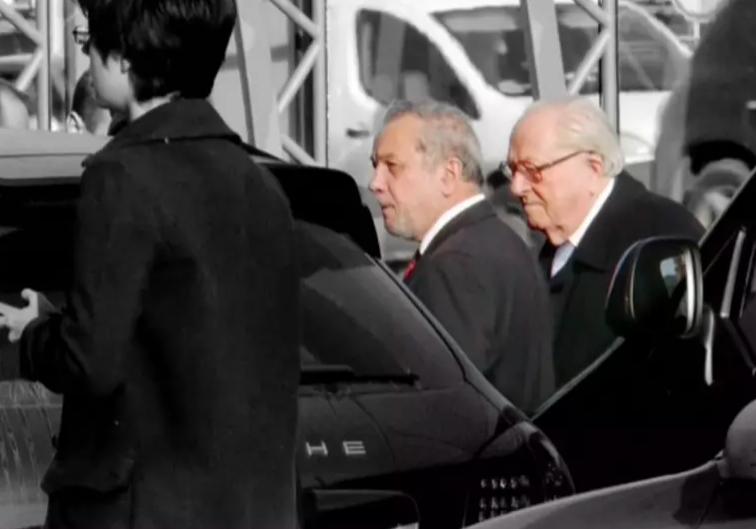
At the end of May of the same 2014, Malofeev and Chavchavadze hosted a closed forum in Vienna dedicated to the 200th anniversary of the formation of the Holy Union. The Swiss publication Tages-Anzeiger described it as a congress of nationalists who planned to recreate a pan-European conservative movement to oppose the liberal gay lobby that dominates Europe. The headliner of the event was Alexander Dugin, and among the participants were European MP and adviser to Marine Le Pen on international affairs Aymeric Choprade, the niece of the leader of the National Front Marion Maréchal-Le Pen, as well as leaders of right-wing radical movements from Austria, Bulgaria, Hungary and other countries. Previously, representatives of many of them were present as international observers at the illegal referendum in Crimea. The guests eulogized Vladimir Putin, called him the "savior" and the reincarnation of Alexander I, on whose initiative the Holy Alliance of European Monarchies was created after the overthrow of Napoleon.
The guests eulogized Putin, called him the savior and reincarnation of Alexander I
Chavchavadze, presumably, brought Malofeev together with Alexander Borodai – before heading the government of the so-called DPR, he worked as a PR consultant for Malofeev. In an interview with the Russian People's Line, the prince said that he knew Borodai "from the cradle" (he was friends with his father) and through him he knew Igor Strelkov (Girkin). As the general director of the St. Basil the Great Foundation, in the summer of 2014, Chavchavadze signed a cooperation agreement with Borodai (Malofeev is called one of the main sponsors of the pro-Russian forces in Crimea and the separatists of Donbass). Formally, the agreements implied organizing the collection of humanitarian aid for the population of Donbass affected by the hostilities. And here is how the Georgian prince recalled his first meeting with Strelkov:
“We talked a lot with Igor, together with Konstantin Malofeev, explained our positions, since we had to cooperate when Strelkov joined our structure even before the Crimean events, when he came to work in our Basil the Great Foundation … It turned out that Strelkov is a monarchist, and Konstantin Malofeev and I are convinced monarchists, as they say, with experience … We talked a lot about Putin. My position is simple. If not for Vladimir Vladimirovich, then Russia would not have existed in 2002 or 2003! Our country would no longer exist! It would have sold out already! And I saw that Strelkov perceives these ideas, that we understand the role of Putin in the same way.
Orthodox Chekists
In September 2014, the international conservative forum "Large families and the future of mankind" was held in Moscow. It was initiated by the Malofeevsky Foundation of St. Basil the Great and the Foundation of St. Andrew the First-Called – a project by Vladimir Yakunin . The former head of Russian Railways also has extensive connections among the descendants of white immigrants. So, in 2010, Yakunin organized a sea voyage for them, dedicated to the 90th anniversary of the exodus of the flotilla of General Wrangel from the Crimea. The expedition members repeated the path of their ancestors, but in the opposite direction – from Europe to Sevastopol, which symbolized the return of the exiles to their native shores. State media then enthusiastically wrote that the campaign would be "a symbolic end to the Civil War in Russia."
About two hundred champions of "traditional values" – public figures, officials, scientists – came from different countries to the "family" forum. Among the guests of honor was Emeric Shoprad mentioned above – at the plenary session he was seated at the same table with Malofeev, Yakunin, Patriarch Kirill and Elena Mizulina. In his speech, adviser Marine Le Pen accused America of unleashing an ideological war against Russia and China and called Moscow a spiritual beacon for other countries. It is interesting that a few years after that, when Shoprad will be a member of the European Parliament's subcommittee on security and defense, Dmitry Peskov's daughter Elizaveta will get an internship in his office. Today, Shoprad takes a frankly pro-Russian position: on Twitter, he criticizes the West for supporting Kyiv and predicts Russia's victory over European arrogance and stupidity.
Le Pen accused America of unleashing an ideological war against Russia and called Moscow a spiritual beacon for other countries
A separate group of forum guests, as The Insider found out , were "French politicians from Prince A. A. Trubetskoy." Their delegation, headed by MEP and one of the main lobbyists of the Kremlin in France, Thierry Mariani, was received on the same days by State Duma Chairman Sergei Naryshkin. The speaker thanked his foreign colleagues for "independence in assessments" and "balanced position" on the Ukrainian issue. Many of them were indeed critical of Western policy toward Russia, visited Crimea on numerous occasions and justified the annexation; the same Mariani called the annexation of Crimea "a historical pattern."
The chairman of the French Society for the Remembrance of the Imperial Guard, Prince Alexander Trubetskoy , who accompanied Mariani's team to the meeting with Naryshkin, is another Russian aristocrat helping the Kremlin work with potential allies in France. A descendant of the Eurasianist ideologue Nikolai Trubetskoy, he has been trading with the USSR since the 1970s, in particular, he supplied communication systems for the Ministry of Civil Aviation, RAO UES of Russia, the Academy of Sciences, ITAR-TASS. One of the prince's key partners among Russian officials was Igor Shchegolev, the former communications minister and now the presidential envoy to the Central Federal District. Trubetskoy met him in the early 1990s, when he was an ITAR-TASS correspondent in Paris, but in fact an undercover employee of the First Main Directorate of the KGB. Shchegolev is also close to the Russian Orthodox Church and is a friend and main patron of Konstantin Malofeev in power. At the suggestion of Shchegolev, in the fall of 2011, Trubetskoy was elected chairman of the board of directors of the telecommunications holding Svyazinvest.
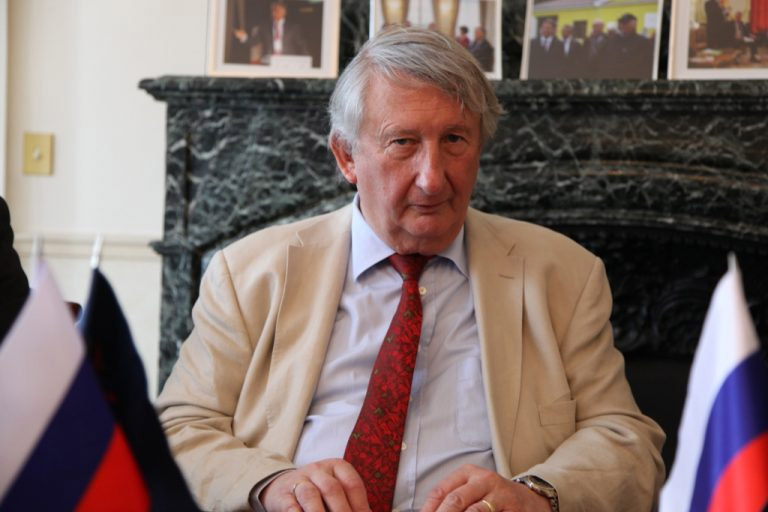
In general, "many of those who played a prominent role in Trubetskoy's career are considered former KGB officers," follows from the prince's profile in Vedomosti. So, on the basis of a passion for military history, Trubetskoy made friends with the future Minister of Culture Alexander Avdeev, also a native of the special services. In the early 2000s, Avdeev was the Russian ambassador to France and "was very interested in the issues of Russia's rapprochement with the descendants of emigrants," Trubetskoy said . Avdeev invited him to co-found the Franco-Russian Dialogue (FRD) association, created in 2004 under the patronage of Putin and Jacques Chirac to develop bilateral cooperation. A few years later, the prince became its executive director. Coincidentally, Vladimir Yakunin and Thierry Mariani held leadership positions in the organization.
The Franco-Russian Dialogue included politicians and businessmen, top managers of the largest companies of the two countries – from Vnesheconombank and Rosoboronexport to Total and Renault. The association, in the words of Trubetskoy, “helped with its contacts at a very high level”: it lobbied for deals, arranged trips for French parliamentarians to Moscow and vice versa, and after the annexation of Crimea, “punched through” the lifting of sanctions from Russia. Participated in the work of the organization and the Embassy of the Russian Federation in Paris, including providing its premises for its meetings, and Rossotrudnichestvo. In April 2016, Mariani, then a member of the National Assembly from the opposition center-right Republican Party, introduced a draft resolution to the lower house of parliament that called on the government to lift the sanctions as "completely ineffective" and threatening the French economy. A few months later, another prominent participant in the Dialogue, Yves Pozzo di Borgo, submitted a similar resolution to the Senate for consideration. Both documents were approved by a majority of votes, but were only advisory in nature.
Sooner or later, the French authorities were bound to have claims against the FRD. According to Le Monde, in September 2021, the Paris prosecutor's office launched two investigations against the association at once – on suspicion of corruption, abuse of influence and trust, and money laundering. At the center of the proceedings are Mariani and di Borgo.
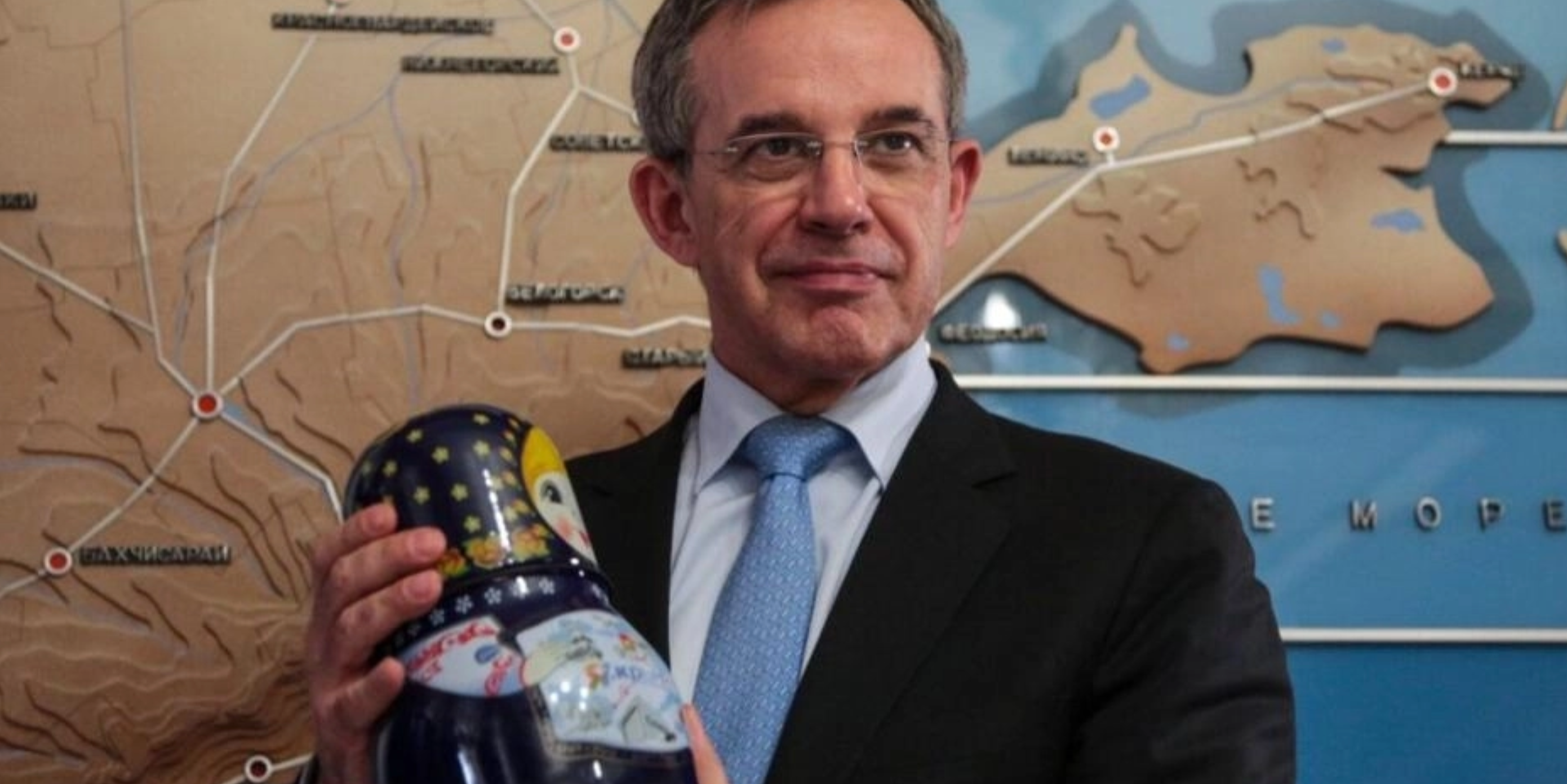
Despite this, the Franco-Russian Dialogue is still actively working in the interests of the Kremlin – campaigning for continued cooperation with the Russian Federation, holding conferences, interviews and meetings with experts and propagandists loyal to Moscow (such as Pyotr Tolstoy). The topics of these meetings are consonant with the Kremlin's agenda: "The American plan to dismantle Russia", "What they don't tell you about Ukraine", "Do France and Europe really need NATO?". On the French side, the organization is still headed by Thierry Mariani, and Yakunin is now listed as its honorary president. It is still not included in the EU sanctions list. In the commercial register of France, as The Insider found out earlier, the FRD indicates two addresses: one of them, on the Champs-Elysées, houses a representative office of Russian Railways, and the second matches the address of the Russian House of Science and Culture in Paris, a branch of Rossotrudnichestvo.
Yakunin and Trubetskoy also interact along the “church line”. At the end of 2016, they participated in the consecration of the new Trinity Cathedral on the Quai Branly in Paris, not far from the Eiffel Tower. Patriarch Kirill personally served the first liturgy in this largest Orthodox church in Europe. The church is located on the territory of the Russian spiritual and cultural center of the Moscow Patriarchate; the complex also includes a Russian-French school, exhibition and concert halls, several elite apartments and offices of the Russian embassy (this land plot was acquired by the Administration of the President of the Russian Federation).
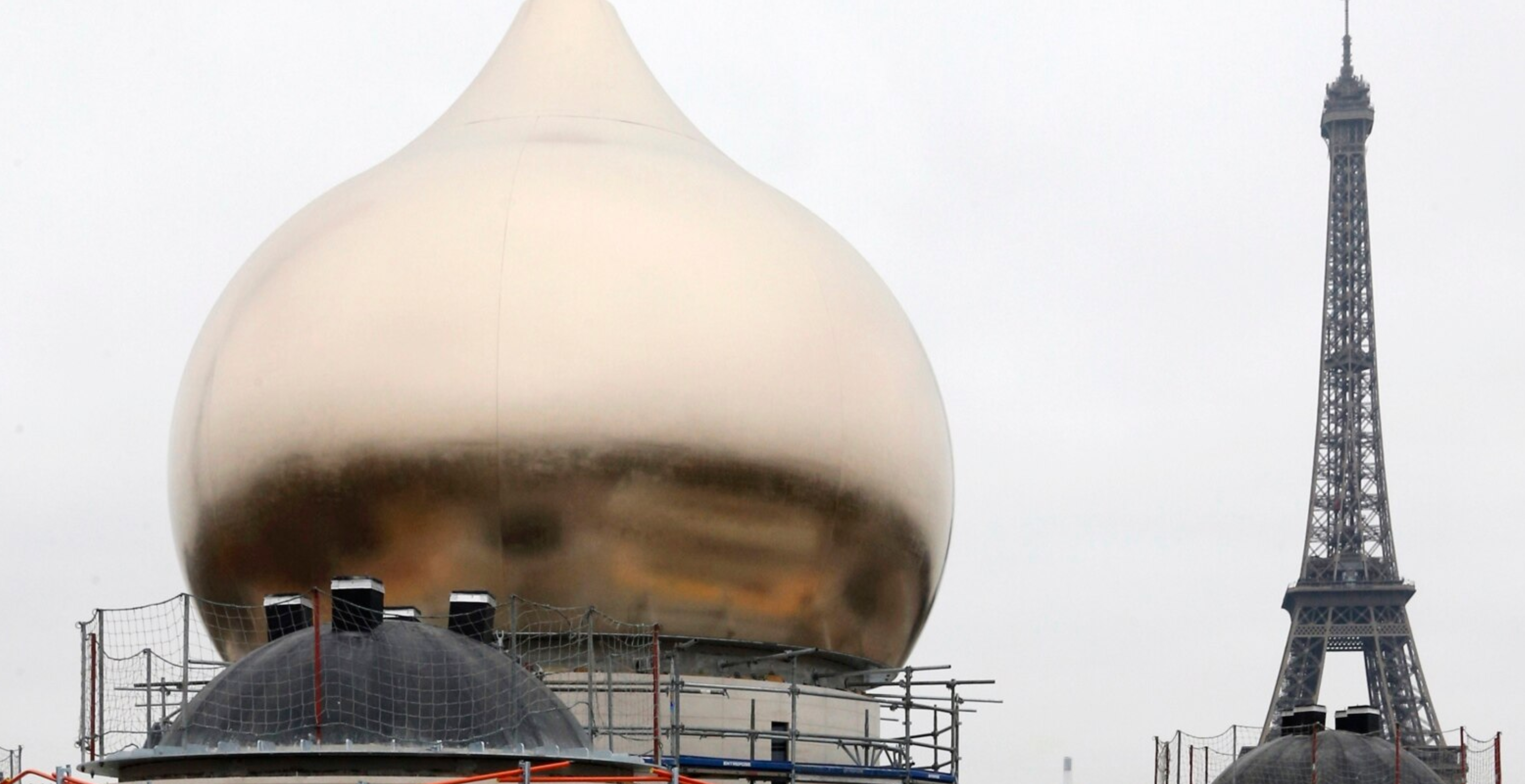
The emergence of such a bright symbol of the Russian presence in the heart of the capital was actively resisted by the French intelligence community. They believe that the "spiritual center", adjacent on three sides to the Alma Palace, one of the official residences of the French president, will become a new base for Russian agents. “The church is very close to the Foreign Ministry and not far from the Elysee Palace. There are fears that conversations in these two important state buildings will be wiretapped from there,” Nicolas Henin, a journalist and author of the book Russian France: An Investigation into Putin’s Networks, told RFI.
Russian envoys
At the end of November last year, at the congress of the Coordinating Council of Russian Compatriots (KSORS), Ambassador Alexei Meshkov presented Trubetskoy with a badge of honor from the Ministry of Foreign Affairs “For Contribution to International Cooperation”. Accepting the award, the prince delivered a bombastic speech about the spiritual superiority of the "Russian world" over the Western one. He called the war in Ukraine "events in the south of Russia", and the representatives of the diaspora – Russian envoys abroad, who, in spite of everything, must proudly defend "our Russianness".
About how he copes with this task, Alexander Trubetskoy told the host of the talk show "The Great Game" on Channel One, Vyacheslav Nikonov (head of the Russkiy Mir Foundation). All the efforts of the prince today are focused on the fight against "anti-Russian propaganda" in France – and the spread of Kremlin propaganda:
“The French media invite Ukrainians all the time, but we Russians are not allowed there. And, of course, [some have doubts], even among my acquaintances, or maybe we climbed in the wrong place, maybe we're doing the wrong thing. This has to be corrected all the time, and this is now the main work of my association [the Society for the Memory of the Imperial Guard].”
In addition to ordinary members of the KSORS, activists of the SOS Donbass movement, which organizes pro-Russian demonstrations in France, also spoke at the November congress. The actions are held under the slogan Stop Killing Donbass: their main message is that the weapons supplied by NATO countries to Ukraine are actually used to destroy the civilian population of Donbass or fall on the black market. In autumn, the founder of the movement , Anna Novikova-Bernet, sent a petition to the French parliament demanding that they stop supplying arms to Kiev.
SOS Donbass alleges that weapons supplied to Ukraine are used to exterminate the population of Donbass or end up on the black market
The last demonstration in defense of Donbass was held on January 21 in the city of Tarbes in the southwest of the country. The protesters, some 40 in all, held flags of France, Russia, and the self-proclaimed Donetsk People's Republic, as well as banners reading "STOP NATO" and "No to fascism." In November last year, a similar action took place on the Champ de Mars in Paris.
The presence of representatives of SOS Donbass at the congress of compatriots organized by the Ministry of Foreign Affairs and Rossotrudnichestvo leaves no doubt about their ties with the Russian authorities. Любопытно и то, что главным информационным партнером Новиковой-Бернэ выступает «независимый военный репортер» из Франции Адриан Боке — завсегдатай эфиров российского Первого канала, прославившийся как «разоблачитель украинского фейка» о Буче. В соцсетях он агитирует своих подписчиков делать пожертвования в пользу SOS Donbass и присоединяться к их протестам.
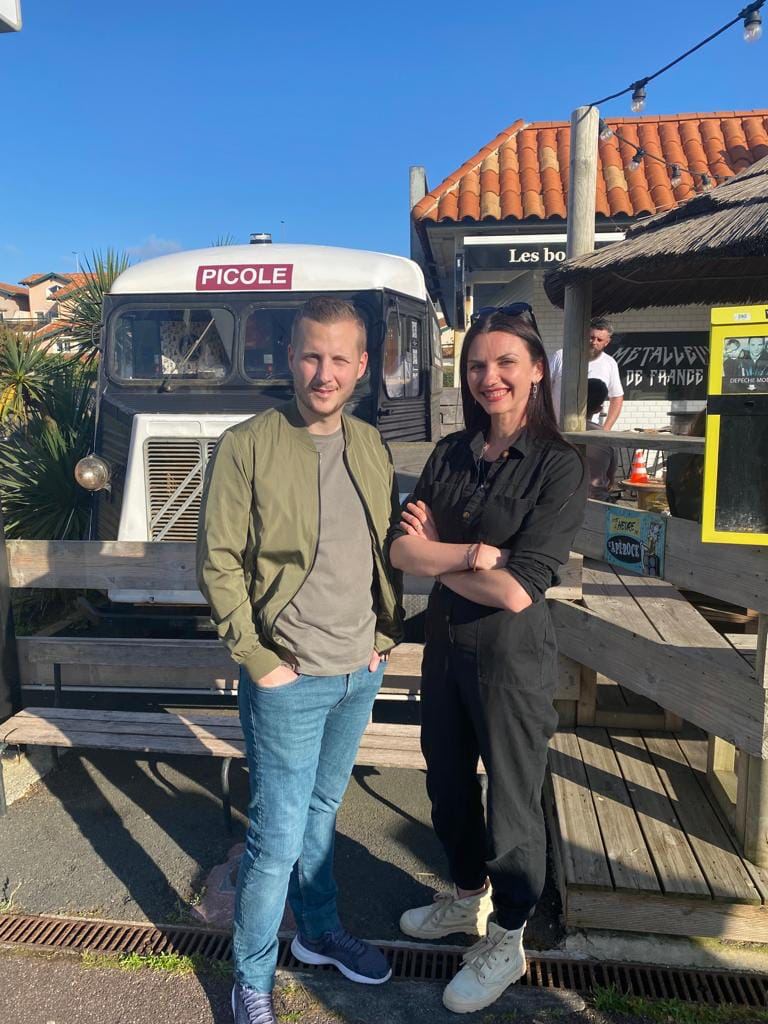
С одобрения МИДа действует и другой организатор демонстраций против НАТО — ассоциация France — Russie Convergences («Франция — Россия — Согласие»). Так, в июне ее представители были приглашены на празднование Дня России к генконсулу РФ в Марселе. С этой структурой связан видный функционер КСОРС, писатель и бывший журналист AFP Дмитрий де Кошко , чей славный предок Аркадий Францевич Кошко был начальником московской сыскной полиции и контролировал огромную сеть агентов-осведомителей.
В конце августа организация провела в Ницце траурную акцию в память о Дарье Дугиной. «Даша шла по пути своего отца Александра Дугина и вместе с ним искала евразийский путь. Это путь вне национализма, либерализма и коммунизма, которые евразийцы считают западными идеями, — сказал господин де Кошко в беседе с ТАСС. — <…> Если Евразия утвердится как большая экономическая и политическая сила, власть империи англосаксов в мире закончится». Сегодня де Кошко — ярый обличитель «антироссийской пропаганды», развернутой европейскими СМИ. Для мониторинга русофобского контента он даже запустил сайт StopRussophobie .
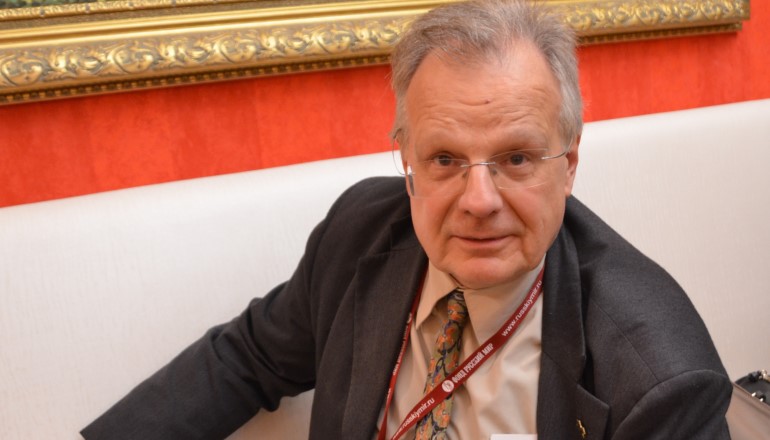
Примечательна и фигура председателя совета соотечественников во Франции — историка и преподавателя Национального института восточных языков и цивилизаций (INALCO) в Париже Георгия Шепелева . Несколько лет назад он подал иск о клевете против профессора славистики Университета Ренн-II (Бретань) Сесиль Вессье. В своей книге «Сети Кремля во Франции» Вессье подробно рассказала о российской «мягкой силе» во Франции, в частности о том, как КСОРС во главе с Шепелевым использовался для продвижения кремлевской повестки. В 2011–2012 годах Шепелев изображал из себя борца с российским режимом — организовывал в Париже демонстрации в поддержку «болотного движения» и координировал в Facebook группу «сторонников демократии в России». Однако совсем скоро он занял совсем иную позицию.
В разговоре с The Insider Сесиль Вессье вспоминает, как уже в феврале 2013 года Шепелев настойчиво приглашал ее на прием в российское посольство: «Я была очень удивлена этим. Конечно, возник вопрос, действительно ли он так сильно поменял свои взгляды или его выступления против Путина с самого начала были провокацией».



